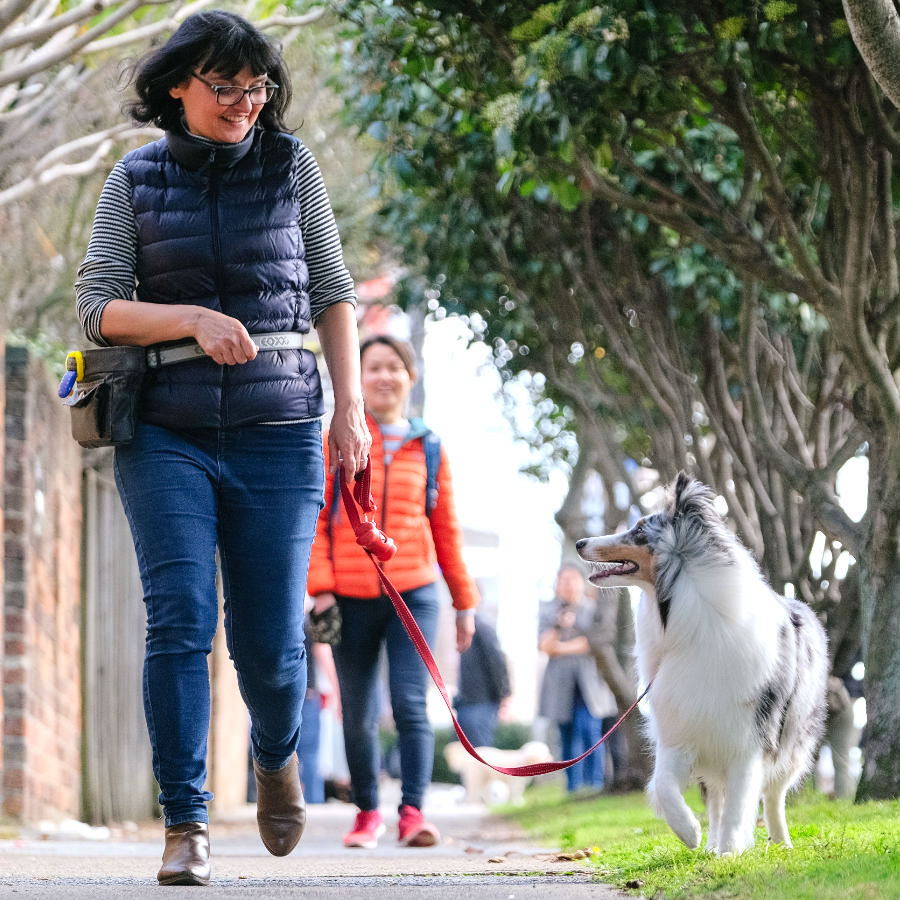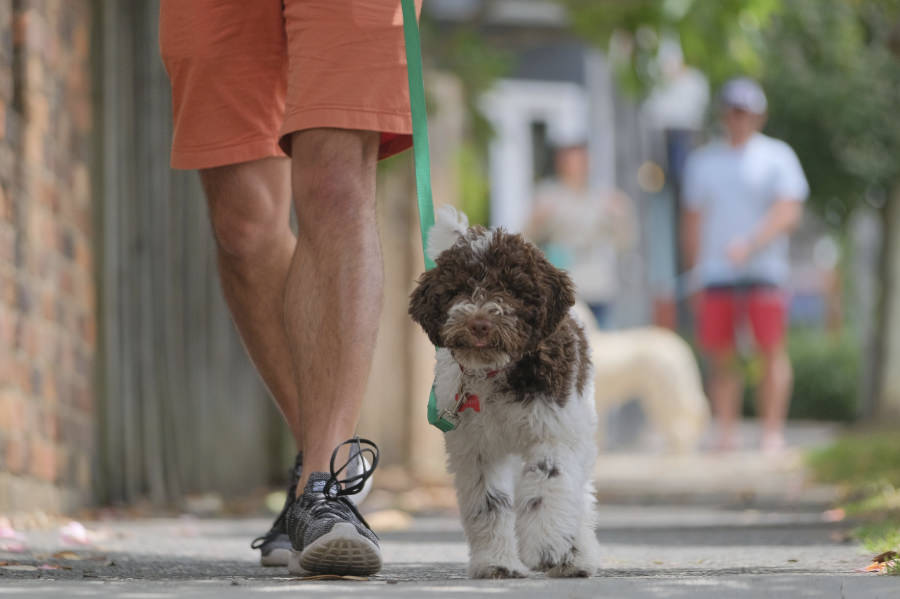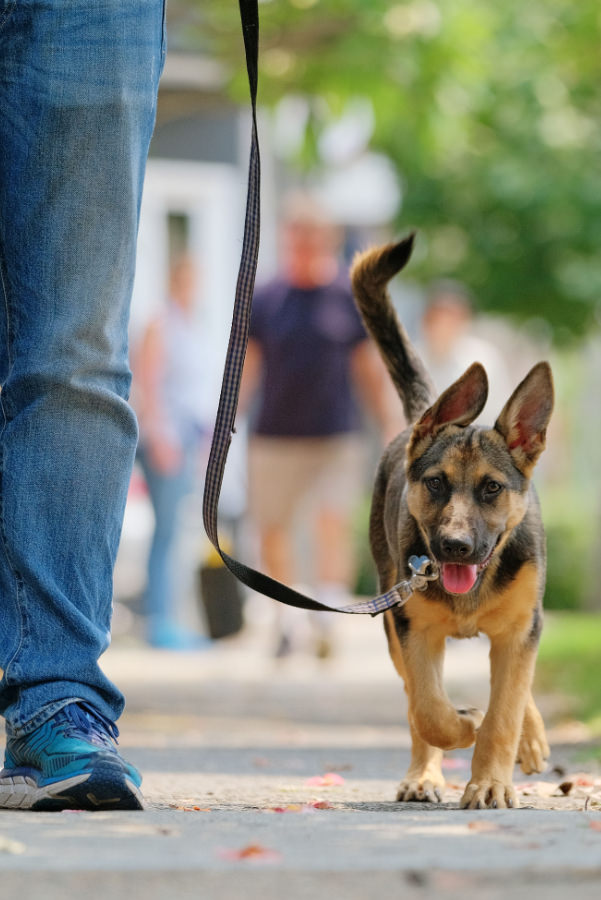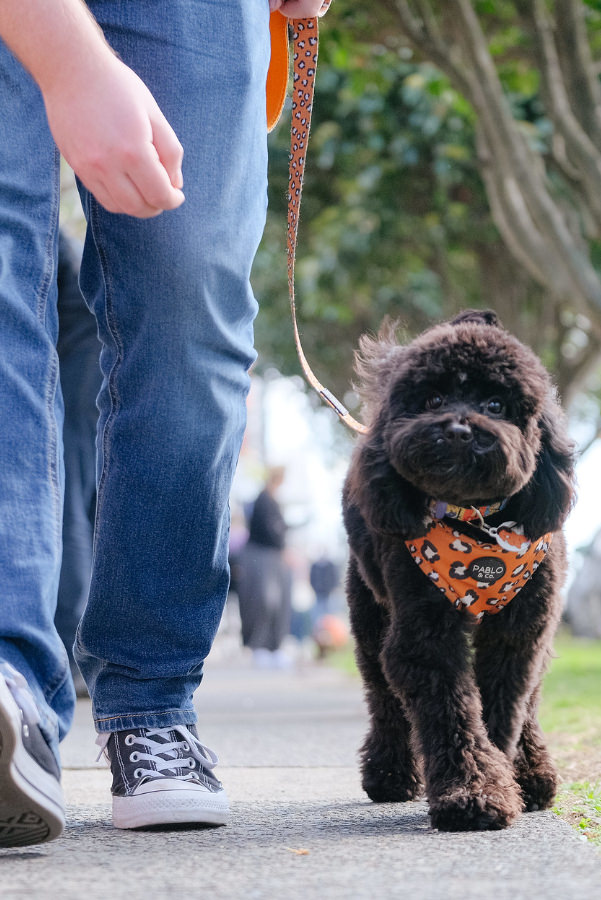Time & Location
When & Where
Our 4-week in-person adolescent dog training classes are run in Crows Nest (Sydney's Lower North Shore), on the following days and times:
Class Schedule:
10:00 am on Sundays: Loose Leash Walking Workshops
Duration per class session: 1 hour
Who Can Come
Maximum 2 persons per enrolled puppy can join our in-person classes.
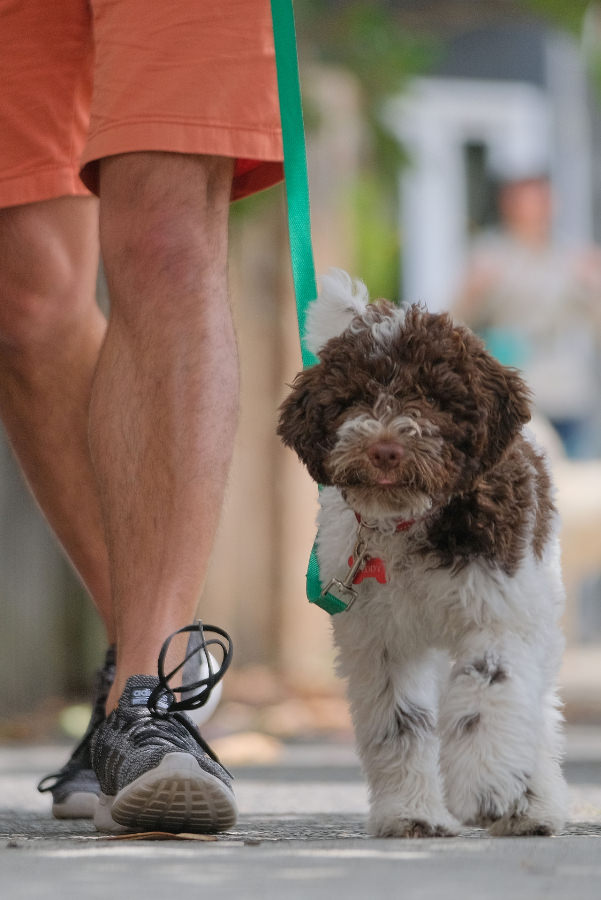
Important
Prerequisites
This is not a dog obedience class.
The focus during our puppy school classes and workshops is to develop your dog literacy and practical skills, based on the most current, scientific understanding of dog behaviour and cognition.
In other words: We help you better understand why your dog does what s/he does, and what you can do, to help your dog make better choices. We teach you how to teach your puppy, so you can successfully, raise a confident, calm and considerate family dog.
Age:
Your dog is between 5 and 12 months old.
Vaccinations:
Your dog needs to be fully vaccinated (C5) to be able to attend these in-person classes.
Please bring a copy of your dog's vaccination certificate at the start of your first class (this can be a screenshot on your phone).
On your first visit, your dog's vaccination certificate must be sighted by your instructor before you can join the class.
Temperament:
These group classes are not suitable for dogs who are easily overwhelmed, and over-react in the presence of unfamiliar people or dogs.
If your dog shows intense fearful or frustrated behaviours, such as repetitive barking and lunging at fellow students and their dogs, I will unfortunately need to ask you to leave the class, in order to prevent further disruption and distress.
Other arrangements can be made, to assist you and your dog.
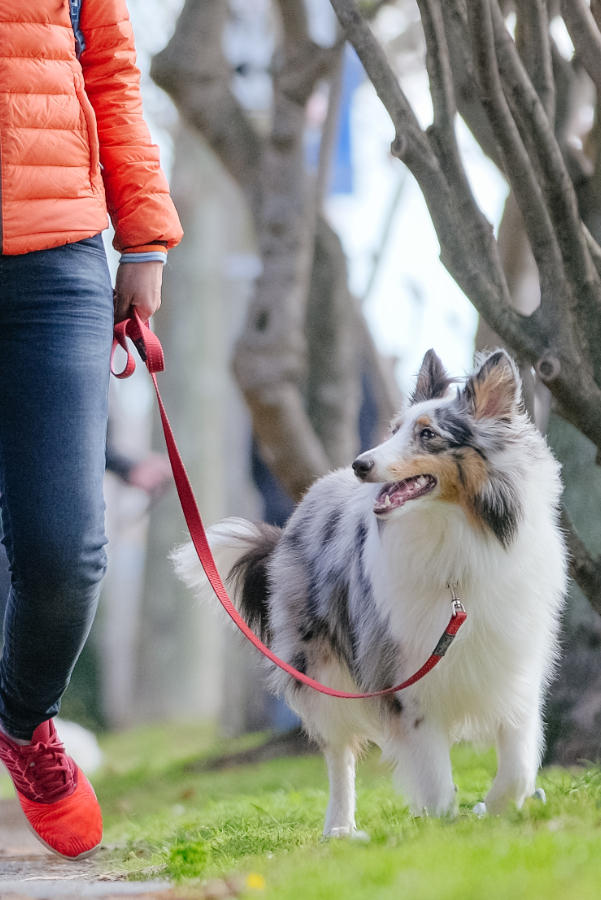
Reminder
What To Bring
A copy of your puppy's vaccination certificate. (Please present prior to entering the classroom, or email us a copy in advance.)
Required training equipment:
- A regular, well-fitted, flat collar with ID tag;
and a regular, flat fabric or leather leash (120 - 180 cm long).
- If you like to use a walking harness, bring it along, so I can check if it is well-fitted, and if it falls into the "Not harmful. Might help." category.
- Your puppy's favourite soft treats (pinkie nail size pieces), in a treat pouch.
- Your puppy's favourite tug toy.
- Your puppy's water bowl.
- Puppy has had a toilet break.
- Your puppy's doggy poo bags.
- Be weather-wise: These classes are held outdoors. Please bring what you need to protect yourself and your puppy, on sunny and rainy days.
Please note, during adverse weather classes will be held under cover, indoors.
Important!
No aversive / deliberate discomfort / pain inducing training equipment is accepted!
We use food and toys as positive reinforcers for training and conditioning purposes.
You will not be able to fully participate during classes, unless you bring all the required, suitable equipment.
